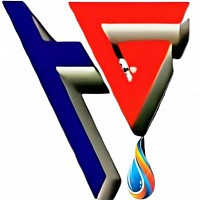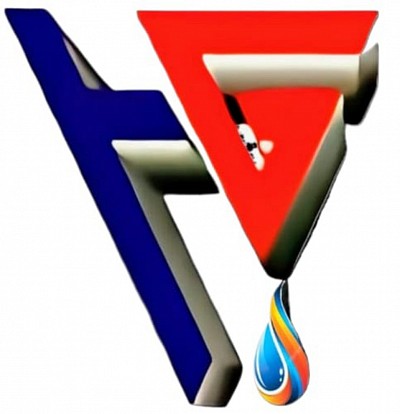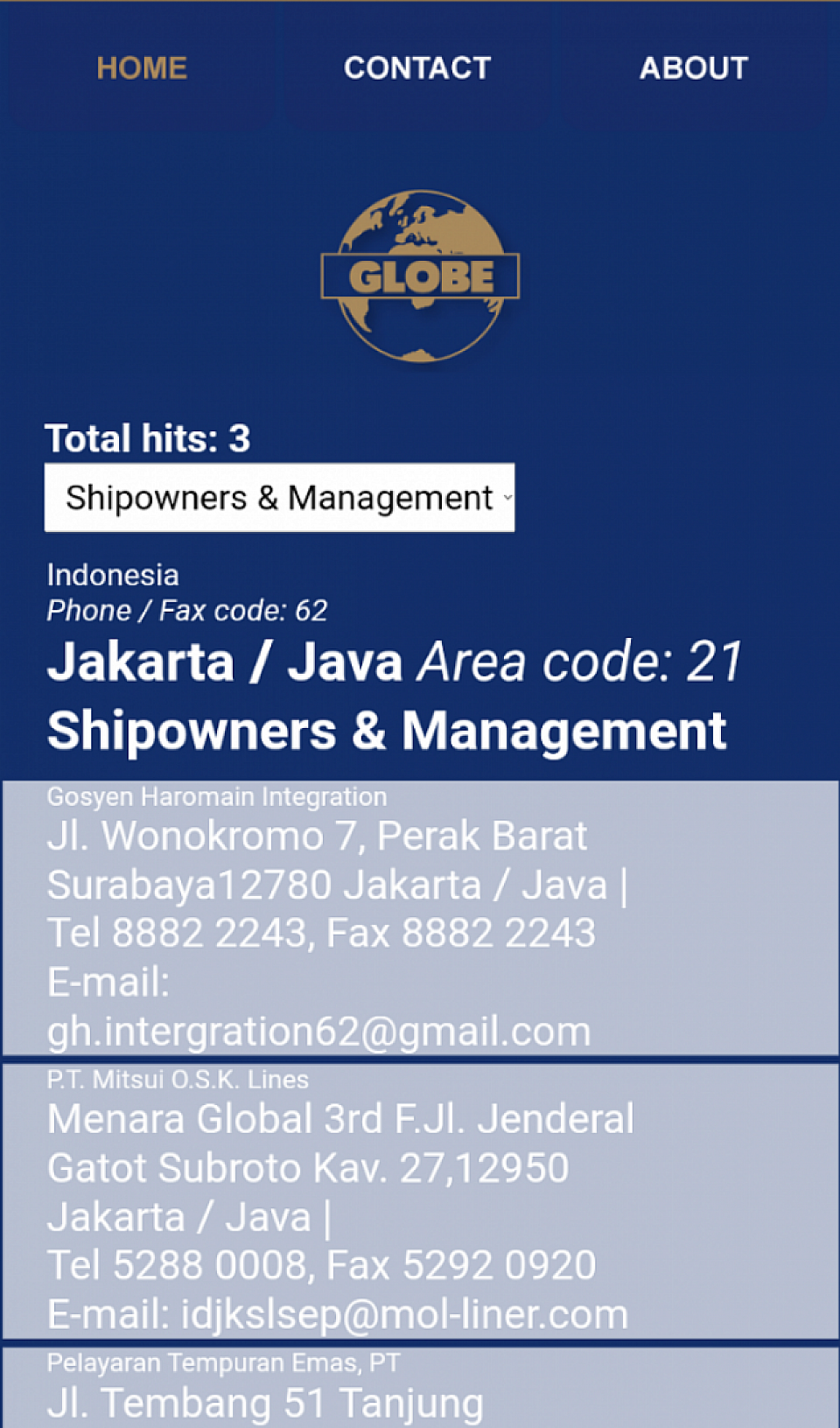Gosyen Haromain Integration Mastering Shipping Logistics and Petroleum Refining
Exploring Shipping and Petroleum Industries
SHIPPING TRANSPORTATION LOGISTICS AND PETROLEUM INDUSTRY REFINES CRUDE OIL AND GAS
Introduction : Company Transportation Logistics, and the Petroleum Refining Industry
Overview : The interconnected realms of shipping transportation logistics and the petroleum refining industry play a pivotal role in the global economy. Shipping and logistics ensure the efficient movement of goods across the world, while the petroleum industry processes crude oil into valuable products essential for various sectors.
Shipping Transportation Logistics:
Shipping transportation logistics involves the planning, implementation, and control of the movement and storage of goods. This sector includes maritime shipping, air freight, rail transport, and road haulage, each contributing to a complex supply chain network.
Key Components Maritime Shipping:
Dominates global trade with cargo ships, container ships, tankers and bulk carriers.E nsure last mile delivery and flexibility in the logistics network.
Petroleum Industry Refining:
The petroleum refining industry transforms crude oil into usable products like gasoline, diesel, jet fuel, and petrochemicals. Refineries play a crucial role in meeting energy demands and supplying raw materials for numerous industries.
Refining Process:
1. Distillation: Separates crude oil into different components based on boiling points.
2. Cracking: Breaks larger molecules into smaller, more valuable products.
3. Reforming: Converts low-octane hydrocarbons into high-octane gasoline components.
4. Blending: Mixes different products to meet specific market requirements.
Interdependence:
The shipping and logistics sector heavily relies on petroleum products to fuel various modes of transport. Conversely, the petroleum industry depends on efficient logistics to distribute refined products globally.
Significance conomic Impact:
Both industries are integral to global trade, impacting GDP and employment.
Technological Advancements:
Innovations in logistics and refining processes enhance efficiency and reduce environmental impact.
Sustainability Challenges:
Both sectors face pressure to adopt greener practices and reduce carbon footprints.
By understanding the dynamics of these industries, stakeholders can better navigate challenges and seize opportunities in the evolving global landscape.
MISSIONS & VISIONS
MISSIONS Our MISSION STATEMENT:
Logistics and Oil Industry Ship Company We are committed to providing reliable, efficient and safe logistics solutions for the transportation of crude oil. By prioritizing technological innovation, the highest safety standards and concern for the environment, we aim to be a trusted partner for the global energy industry. We are dedicated to supporting our clients' logistics needs with superior and sustainable service, ensuring a smooth energy supply chain worldwide.
VISIONS Our VISION STATEMENT:
Logistics and Oil Industry Ships Company:
To become a global leader in the maritime logistics and oil transportation industry, which prioritizes innovation, safety and poverty, and provides maximum value for stakeholders."
This vision includes several important elements:
1. Global Leadership: Emphasizes the ambition to become a leader in international markets.
2. Innovation: Demonstrates commitment to the development of new technologies and methods.
3. Safety: Highlights the importance of maintaining high safety standards in operations.
4. Sustainability: Emphasize environmental responsibility and sustainable operations.
5. Stakeholder Value: Focus on providing benefits to customers, employees, investors and the surrounding community.
This vision reflects the strategic aspirations and core values held by the company in the long term.
Well, I can help you with various things related to business in the maritime transportation, oil sales and logistics sectors. Here are some topics that might be relevant to discuss or get more information about:
1. Regulation and Compliance:
- International and local maritime regulations.
- Safety and environmental standards.
- Compliance with energy regulations and oil sales.
2. Operational Management:
- Optimization of delivery routes.
- Ship fleet management.
- Logistics efficiency and supply chain management.
3. Business Strategy:
- Global oil market analysis.
- Oil sales and distribution strategy.
- Partnership and cooperation in the logistics sector.
4. Technology and Innovation:
- Implementation of the latest technology in sea transportation management.
- Digitalization of logistics.
- Utilization of data and analytics in operations management.
5. Finance and Investment:
- Sources of financing and investment in this sector.
- Oil price risk management.
- Operational cost management strategy.
- Is there a specific aspect you want to cover or more in-depth information you need regarding your business?
Our Goals Shipping, Transportation Logistics, and the Petroleum Refining Industry
1. Enhance Efficiency and Reliability: Implement advanced logistics and tracking technologies to ensure timely deliveries and minimize delays.
2. Sustainability: Transition to eco-friendly fuels and implement green practices to reduce the carbon footprint.
3. Cost Optimization: Streamline operations to reduce costs without compromising service quality.
Transportation Logistics
1. Improve Supply Chain Visibility: Utilize real-time data and analytics for better tracking and management of goods.
2. Optimize Routes: Use advanced algorithms and AI to determine the most efficient routes, reducing fuel consumption and delivery times.
3. Integrate Advanced Technologies: Adopt IoT, blockchain, and automation to enhance efficiency, security, and transparency in the logistics process.
Petroleum Refining Industry
1. Increase Production Efficiency: Invest in modern refining technologies to maximize output and minimize waste.
2. Environmental Compliance: Ensure all operations comply with environmental regulations and work towards reducing emissions and pollutants.
3. Diversify Energy Portfolio: Explore and invest in alternative energy sources to reduce dependency on traditional petroleum refining.
These goals collectively aim to modernize operations, enhance sustainability, and improve overall efficiency across the shipping, transportation logistics, and petroleum refining sectors.
Human resources: Transportation Logistics, and the Petroleum Refining Industry
Human resources (HR) in the Transportation Logistics and Petroleum Refining industries involves managing a wide range of functions critical to the operations of these sectors. Here's an overview of how HR operates in these fields:
Transportation Logistics
1. Talent Acquisition and Retention:
- Recruitment: Identifying and hiring skilled professionals such as logistics managers, drivers, warehouse staff, and supply chain analysts.
- Retention Strategies: Implementing programs to retain employees through competitive salaries, benefits, and career development opportunities.
2. Training and Development:
- Skill Development: Offering training in areas such as supply chain management, regulatory compliance, and safety protocols.
- Technology Training: Ensuring employees are adept at using logistics software, GPS systems, and other technological tools.
3. Regulatory Compliance:
- Safety Regulations: Ensuring compliance with local, national, and international safety standards and regulations.
- Environmental Laws: Implementing policies to meet environmental regulations and sustainability goals.
4. Performance Management:
- Evaluation Systems: Regular performance reviews and feedback systems to improve efficiency and productivity.
- Incentive Programs: Creating bonus structures and other incentives to boost employee morale and performance.
Petroleum Refining Industry
- 1. Workforce Planning and Management:
- Staffing Needs: Addressing the need for a highly specialized workforce including engineers, technicians, and safety inspectors.
- Shift Management: Coordinating complex shift patterns to ensure continuous operations in a 24/7 industry.
2. Health and Safety:
- Safety Training: Conducting rigorous safety training programs to mitigate risks associated with working in refineries.
- Emergency Response: Developing and maintaining emergency response plans and drills.
3. Regulatory Compliance:
- Industry Standards: Ensuring adherence to industry-specific regulations such as those from OSHA (Occupational Safety and Health Administration) and EPA (Environmental Protection Agency).
- Reporting Requirements: Managing compliance with reporting standards and maintaining records for audits.
4. Employee Relations:
- Union Relations: Handling negotiations and maintaining relations with labor unions where applicable.
- Conflict Resolution: Implementing policies and procedures for addressing workplace conflicts and grievances.
5. Compensation and Benefits:
- Competitive Salaries: Offering salaries that attract and retain top talent in a competitive industry.
- Benefit Packages: Providing comprehensive benefits, including health insurance, retirement plans, and wellness programs.
- In both industries, HR plays a vital role in ensuring that the workforce is skilled, compliant with regulations, and motivated to perform at their best. These sectors face unique challenges such as stringent safety requirements and the need for highly specialized skill sets, making effective HR management crucial to their success.
Customer satisfaction: Customer satisfaction in the transportation logistics and petroleum refining industries is critical due to their central role in the supply chain and energy sectors. Here’s an overview of the key aspects for each industry:
Transportation Logistics :
1. Timeliness and Reliability:
- Ensuring on-time deliveries and consistent service is crucial.
- Advanced tracking systems and real-time updates can significantly enhance customer satisfaction by providing transparency.
2. Communication:
- Clear, consistent communication with customers about shipment status and potential delays helps build trust.
- Utilizing customer service portals and responsive support teams improves customer interactions.
3. Efficiency and Cost:
- Optimizing routes and load management to reduce costs and improve efficiency benefits customers through lower prices and faster service.
- Implementing technologies like AI and machine learning can streamline operations and predict issues before they arise.
4. Flexibility and Customization:
- Offering flexible solutions to meet specific customer needs, such as customized delivery schedules or tailored logistics services.
- Adapting to customer preferences and providing value-added services can enhance the customer experience.
Petroleum Refining Industry :
1. Product Quality:
- Consistently providing high-quality fuel and petroleum products is fundamental to customer satisfaction.
- Investing in advanced refining technologies ensures the production of cleaner and more efficient fuels.
2. Supply Reliability:
- Maintaining a reliable supply chain to prevent disruptions is crucial.
- Strategic partnerships and robust inventory management can help ensure steady supply.
3. Pricing Transparency:
- Transparent pricing models and fair pricing strategies help build trust with customers.
- Offering competitive pricing while managing market fluctuations effectively is important.
4. Sustainability & Environmental Impact:
- Increasingly, customers are concerned with the environmental footprint of the products they use.
- Investing in sustainable practices and green technologies can improve customer perception and satisfaction.
5. Customer Support and Relationship Management:
- Providing excellent customer service and support for issues related to products or deliveries is essential.
- Building long-term relationships through consistent engagement and feedback mechanisms helps in understanding and meeting customer needs.
Shared Strategies for Enhancing Customer Satisfaction :
1. Technology Integration:
- Implementing digital solutions like IoT, blockchain, and advanced analytics can improve operational efficiency and customer service in both industries.
- Predictive maintenance and proactive problem-solving through technology reduce downtime and enhance reliability.
2. Data-Driven Decision Making:
- Leveraging data to understand customer preferences and optimize service delivery.
- Using customer feedback to continuously improve processes and services.
3. Sustainability Initiatives:
- Both industries are moving towards more sustainable practices, which can improve public perception and meet the increasing demand for eco-friendly solutions.
- Initiatives such as reducing carbon footprints, using renewable energy, and improving energy efficiency are critical.
4. Regulatory Compliance:
- Adhering to industry regulations and standards ensures safety, reliability, and trustworthiness.
- Proactive compliance management helps avoid legal issues and maintain a good reputation.
Improving customer satisfaction in these industries requires a holistic approach that includes technology adoption, process optimization, and a strong focus on customer needs and preferences.
Our Values / We Value: Our Values / We Value Transportation Logistics, and the Petroleum Refining Industry if sounds like you're highlighting the importance of transportation logistics and the petroleum refining industry in your values statement. These industries play crucial roles in ensuring efficient movement of goods and in providing essential fuels and products. If you have specific questions or need further elaboration on these topics, feel free to ask!
Our Principles Transportation Logistics, and the Petroleum Refining Industry :
The principles governing transportation logistics in the petroleum refining industry are critical due to the nature of the products involved and the logistical challenges they pose.
Key principles include:
1. Safety and Compliance: Ensuring all transportation activities comply with safety regulations and industry standards to prevent accidents and environmental damage.
2. Efficiency and Optimization: Maximizing efficiency in transportation routes, modes, and scheduling to minimize costs and reduce environmental impact.
3. Supply Chain Integration: Seamless integration of transportation logistics with the broader supply chain to ensure timely delivery of refined petroleum products to consumers and industrial clients.
4. Risk Management: Proactively identifying and mitigating risks associated with transportation, such as supply chain disruptions, geopolitical factors, and market fluctuations.
5. Technology Utilization: Embracing technological advancements like GPS tracking, route optimization software, and real-time monitoring systems to enhance transparency, efficiency, and security in transportation operations.
6. Environmental Sustainability: Implementing strategies to reduce carbon footprint and environmental impact through efficient transportation practices, alternative fuels, and emission reduction technologies.
7. Customer Service and Responsiveness: Prioritizing customer needs by ensuring reliable and responsive transportation services, maintaining communication, and adapting to changing market demands.
These principles collectively ensure that transportation logistics in the petroleum refining industry are both efficient and sustainable, supporting the reliable supply of refined products to global markets while minimizing environmental impact and operational risks.



